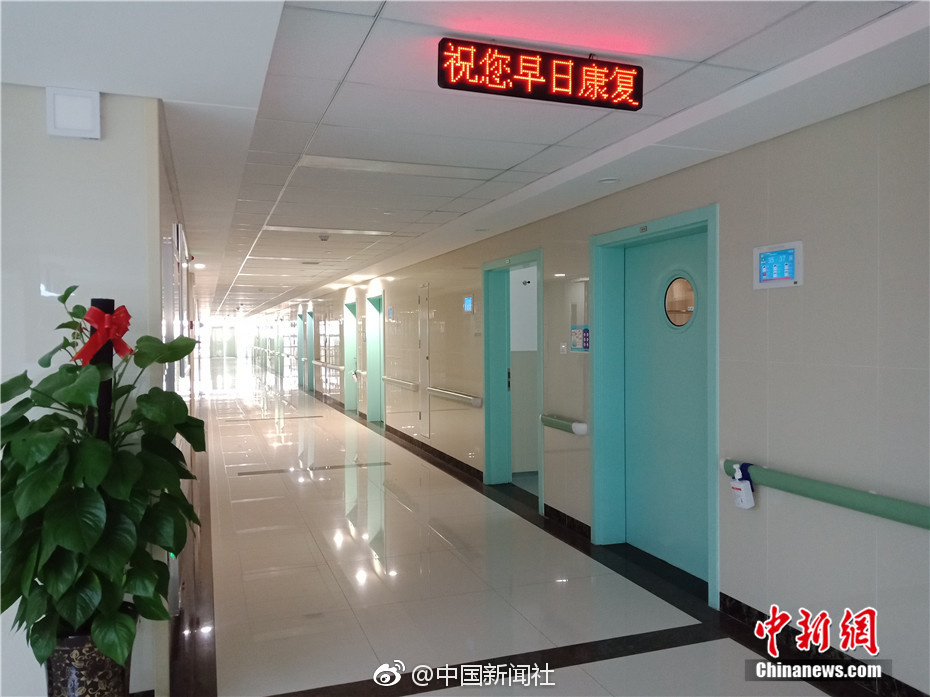
System error, also known as measurable error, is caused by some common causes in the process of analysis operation.
Random error: It is a mutually compensated error formed by a series of small random fluctuations of relevant factors in the measurement process. System error: refers to a non-random error. For example, the bias error that violates the random principle, the error caused by the registration record in the sampling, etc.
System error: also known as regular error, because its size and symbol do not change or change according to a certain law. Its main feature is that it is easy to eliminate or correct accidental error: also known as random error, because its appearance is completely random.
1. System error is caused by some imperfections of the instrument, limited measurement technology or insufficient experimental methods to ensure the correct experimental conditions and other reasons. For example, when the time of measuring the meter is stopped, the stop meter is inaccurate and slow. , the time interval of the measurement is always small. The random error is characterized by its randomness.
2. Accidental error: the error caused by the inaccuracy of the observer's reading. Features: Measurement results are large and small. System error: errors caused by inaccurate measuring instruments and imperfect experimental principles.
3. System error refers to a non-random error. For example, the bias error that violates the random principle, the error caused by the registration record in the sampling, etc. It makes the overall characteristic value too high or too low in the sample.
Finiteness: Under certain observation conditions, the absolute value of the accidental error will not exceed a certain limit. ( 2) Concentration: that is, the error with a smaller absolute value is more likely to occur than the error with a larger absolute value. ( 3) Symmetry: The probability of positive errors and negative errors with equal absolute values is the same.
Adventional error is also known as random error. The main differences from system error are as follows: different causes of occurrence. Random error: the reason for its occurrence is the influence of various unstable random factors in the analysis process, such as the instability of environmental conditions such as room temperature, relative humidity and air pressure.
The difference between system error and accidental error is that system error is inevitable.Free (but can be reduced by balancing friction and other methods), and accidental errors can be avoided by multiple measurements. System error refers to the inevitable error during the experiment. Accidental error refers to avoidable errors such as experimental operation errors.
Random error: refers to under the same conditions, due to various unpredictable accidental factors, different types of measured values of the same physical quantity are measured multiple times. Different degrees of error are called random error, also known as accidental error. System error: refers to a non-random error.
The main difference is that it has different properties, different causes and different characteristics, as follows: different properties, accidental error, accidental error generally refers to random error, which is a mutually compensated error formed by a series of small random fluctuations of relevant factors in the measurement process.
The difference between system error and accidental error is that unified error is inevitable, and accidental error can be avoided by multiple measurements. System error refers to the inevitable error during the experiment, and accidental error refers to the man-made and avoidable errors such as experimental operation errors. Error is an experimental scientific term, which refers to the degree to which the measurement results deviate from the true value.
System error: inevitable errors in experiments, such as frictional resistance, air resistance, and errors of the experiment itself, such as constant voltage when using power supply. Accidental error: measurement error, experimental operation error and other man-made and avoidable errors.
The system error is caused by some of the instrumentImprovement, limitation of measurement technology or insufficient experimental methods and failure to ensure correct experimental conditions occur. For example, when stopping the meter to measure the time, the stop table is inaccurate and slow, and the time interval of the measurement is always small. The accidental error is characterized by its randomness.
System error: Maintaining a constant or its change in the same measurement process is part of the predictable measurement error. Accidental error: the measurement error in the sequence of measured values under the same measurement conditions is uncertain, but subject to certain statistical laws.
System error is a kind of error caused by certain fixed causes in the analysis process. It is repetitive, one-way and measurable. That is, under the same conditions, it will appear repeatedly when the measurement is repeated, so that the system of the measurement results is high or low, and its numerical size also has a certain regularity.
Adventional error is also known as random error. The main differences from system error are as follows: different causes of occurrence. Random error: the reason for its occurrence is the influence of various unstable random factors in the analysis process, such as the instability of environmental conditions such as room temperature, relative humidity and air pressure.

1. The main difference is that it has different properties, different causes and different characteristics, as follows: different properties, accidental error. Accidental error generally refers to random error, which is formed by a series of small random fluctuations of relevant factors in the measurement process. The error of mutual compensation.
2. Different characteristics, system error, repeatability, one-way, measurability.
3. Random error is also known as random error. The main differences from system error are as follows: different causes Random error: the reason for its occurrence is the influence of various unstable random factors in the analysis process, such as the instability of environmental conditions such as room temperature, relative humidity and air pressure.
Binance Download for PC Windows 10-APP, download it now, new users will receive a novice gift pack.
System error, also known as measurable error, is caused by some common causes in the process of analysis operation.
Random error: It is a mutually compensated error formed by a series of small random fluctuations of relevant factors in the measurement process. System error: refers to a non-random error. For example, the bias error that violates the random principle, the error caused by the registration record in the sampling, etc.
System error: also known as regular error, because its size and symbol do not change or change according to a certain law. Its main feature is that it is easy to eliminate or correct accidental error: also known as random error, because its appearance is completely random.
1. System error is caused by some imperfections of the instrument, limited measurement technology or insufficient experimental methods to ensure the correct experimental conditions and other reasons. For example, when the time of measuring the meter is stopped, the stop meter is inaccurate and slow. , the time interval of the measurement is always small. The random error is characterized by its randomness.
2. Accidental error: the error caused by the inaccuracy of the observer's reading. Features: Measurement results are large and small. System error: errors caused by inaccurate measuring instruments and imperfect experimental principles.
3. System error refers to a non-random error. For example, the bias error that violates the random principle, the error caused by the registration record in the sampling, etc. It makes the overall characteristic value too high or too low in the sample.
Finiteness: Under certain observation conditions, the absolute value of the accidental error will not exceed a certain limit. ( 2) Concentration: that is, the error with a smaller absolute value is more likely to occur than the error with a larger absolute value. ( 3) Symmetry: The probability of positive errors and negative errors with equal absolute values is the same.
Adventional error is also known as random error. The main differences from system error are as follows: different causes of occurrence. Random error: the reason for its occurrence is the influence of various unstable random factors in the analysis process, such as the instability of environmental conditions such as room temperature, relative humidity and air pressure.
The difference between system error and accidental error is that system error is inevitable.Free (but can be reduced by balancing friction and other methods), and accidental errors can be avoided by multiple measurements. System error refers to the inevitable error during the experiment. Accidental error refers to avoidable errors such as experimental operation errors.
Random error: refers to under the same conditions, due to various unpredictable accidental factors, different types of measured values of the same physical quantity are measured multiple times. Different degrees of error are called random error, also known as accidental error. System error: refers to a non-random error.
The main difference is that it has different properties, different causes and different characteristics, as follows: different properties, accidental error, accidental error generally refers to random error, which is a mutually compensated error formed by a series of small random fluctuations of relevant factors in the measurement process.
The difference between system error and accidental error is that unified error is inevitable, and accidental error can be avoided by multiple measurements. System error refers to the inevitable error during the experiment, and accidental error refers to the man-made and avoidable errors such as experimental operation errors. Error is an experimental scientific term, which refers to the degree to which the measurement results deviate from the true value.
System error: inevitable errors in experiments, such as frictional resistance, air resistance, and errors of the experiment itself, such as constant voltage when using power supply. Accidental error: measurement error, experimental operation error and other man-made and avoidable errors.
The system error is caused by some of the instrumentImprovement, limitation of measurement technology or insufficient experimental methods and failure to ensure correct experimental conditions occur. For example, when stopping the meter to measure the time, the stop table is inaccurate and slow, and the time interval of the measurement is always small. The accidental error is characterized by its randomness.
System error: Maintaining a constant or its change in the same measurement process is part of the predictable measurement error. Accidental error: the measurement error in the sequence of measured values under the same measurement conditions is uncertain, but subject to certain statistical laws.
System error is a kind of error caused by certain fixed causes in the analysis process. It is repetitive, one-way and measurable. That is, under the same conditions, it will appear repeatedly when the measurement is repeated, so that the system of the measurement results is high or low, and its numerical size also has a certain regularity.
Adventional error is also known as random error. The main differences from system error are as follows: different causes of occurrence. Random error: the reason for its occurrence is the influence of various unstable random factors in the analysis process, such as the instability of environmental conditions such as room temperature, relative humidity and air pressure.

1. The main difference is that it has different properties, different causes and different characteristics, as follows: different properties, accidental error. Accidental error generally refers to random error, which is formed by a series of small random fluctuations of relevant factors in the measurement process. The error of mutual compensation.
2. Different characteristics, system error, repeatability, one-way, measurability.
3. Random error is also known as random error. The main differences from system error are as follows: different causes Random error: the reason for its occurrence is the influence of various unstable random factors in the analysis process, such as the instability of environmental conditions such as room temperature, relative humidity and air pressure.
OKX Wallet app download for Android
author: 2025-01-10 17:00 Binance market
Binance market
593.65MB
Check OKX app
OKX app
925.38MB
Check Binance login
Binance login
271.13MB
Check okx.com login
okx.com login
133.67MB
Check Binance Download for PC Windows 10
Binance Download for PC Windows 10
994.88MB
Check Binance US
Binance US
855.52MB
Check OKX Wallet app download for Android
OKX Wallet app download for Android
329.89MB
Check Okx app download
Okx app download
561.87MB
Check Binance Download for PC
Binance Download for PC
592.54MB
Check OKX Wallet APK
OKX Wallet APK
273.59MB
Check OKX Wallet apk download
OKX Wallet apk download
832.43MB
Check Binance app
Binance app
829.93MB
Check Binance APK
Binance APK
231.91MB
Check OKX Wallet extension
OKX Wallet extension
166.16MB
Check OKX Wallet login
OKX Wallet login
468.85MB
Check Binance app download Play Store
Binance app download Play Store
356.96MB
Check OKX review
OKX review
811.94MB
Check Binance download iOS
Binance download iOS
978.85MB
Check Binance login App
Binance login App
475.24MB
Check OKX review
OKX review
762.15MB
Check OKX Wallet APK
OKX Wallet APK
116.48MB
Check Binance market
Binance market
154.85MB
Check OKX app
OKX app
199.53MB
Check Binance app
Binance app
892.34MB
Check OKX Wallet extension
OKX Wallet extension
137.83MB
Check OKX Wallet apk download
OKX Wallet apk download
388.59MB
Check Binance US
Binance US
545.65MB
Check Binance APK
Binance APK
935.69MB
Check okx.com login
okx.com login
488.31MB
Check Binance download Android
Binance download Android
465.22MB
Check OKX download
OKX download
329.75MB
Check Binance download APK
Binance download APK
293.53MB
Check Binance login
Binance login
368.52MB
Check Binance Download for PC
Binance Download for PC
921.22MB
Check Binance login
Binance login
898.26MB
Check Binance download APK
Binance download APK
628.43MB
Check
Scan to install
Binance Download for PC Windows 10 to discover more
Netizen comments More
1135 弄瓦之喜网
2025-01-10 18:45 recommend
2526 思断义绝网
2025-01-10 18:00 recommend
2939 敬酒不吃吃罚酒网
2025-01-10 17:33 recommend
387 举一废百网
2025-01-10 17:23 recommend
2087 稀世之宝网
2025-01-10 17:17 recommend